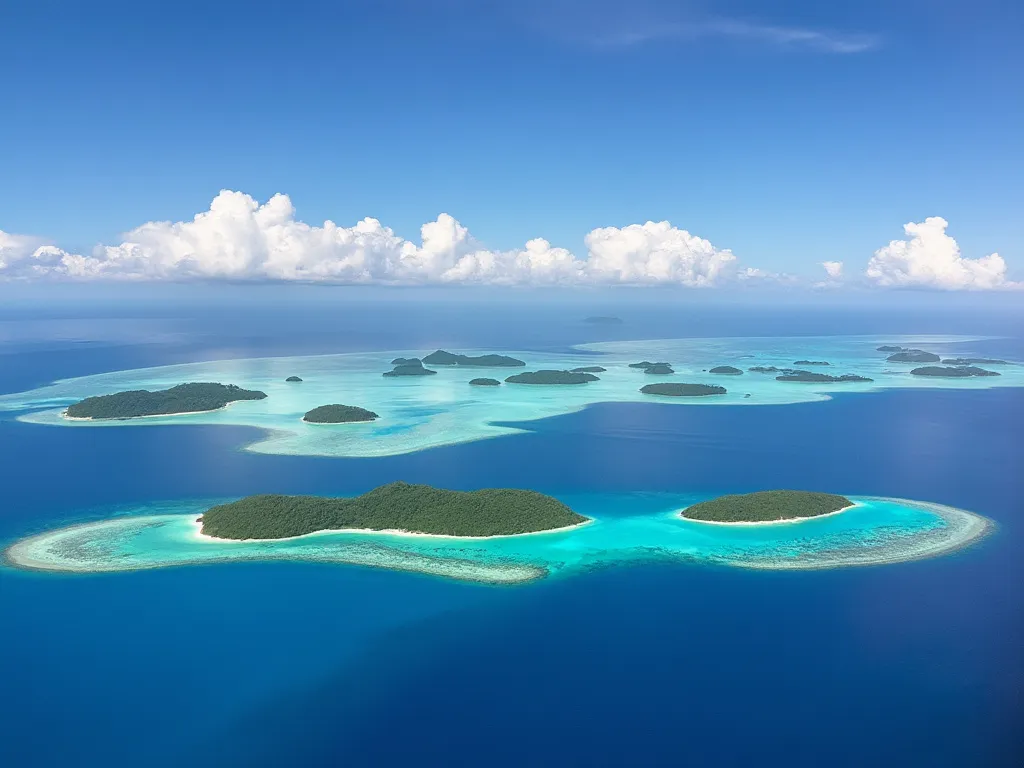
Funafuti es la capital de Tuvalu, una pequeña nación insular en el Océano Pacífico Sur. Es el principal atolón del país y el grupo de islas más poblado, albergando la sede del gobierno y la mayoría de la población urbana de Tuvalu.
Información sobre Funafuti
| País | 🇹🇻 Tuvalu |
|---|---|
| Población | 6,320 (estimación de 2017) |
| Coordenadas | 8°31′S 179°13′E |
| Área | 2.4 km² (0.93 sq mi) |
| Clima | Clima de selva tropical |
| Idioma | Tuvaluano, Inglés |
| Moneda | Dólar tuvaluano, Dólar australiano |
| Zona horaria | UTC+12 |
| Proximidad a otras ciudades importantes | 1,118 km a Suva, Fiyi; 2,816 km a Port Vila, Vanuatu |
Antecedentes históricos de Funafuti
Funafuti tiene una rica historia que se remonta a siglos atrás:
- 3000 a.C.: Primeros asentamientos por polinesios
- 1819: Primer contacto europeo por Arent Schuyler de Peyster
- 1892: Se convirtió en un protectorado británico como parte de las Islas Gilbert y Ellice
- 1978: Tuvalu obtuvo la independencia, con Funafuti como su capital
- Segunda Guerra Mundial: Sirvió como una base importante para los Aliados
Ubicación geográfica de Funafuti
Funafuti es un atolón que comprende numerosos islotes que rodean una laguna central:
- Ubicado en el Océano Pacífico occidental
- Parte de Polinesia
- Consiste en una franja estrecha de tierra entre 20 y 400 metros de ancho
- Rodea una gran laguna (18 km de largo y 14 km de ancho)
Significado cultural de Funafuti
Como capital, Funafuti juega un papel crucial en la preservación y exhibición de la cultura tuvaluana:
- Actuaciones de danza y música tradicional tuvaluana
- Producci��n de artesanías, incluyendo tejido y tallado en madera
- Sede de celebraciones y festivales nacionales
- Hogar de la Biblioteca y Archivos Nacionales de Tuvalu
Importancia económica de Funafuti
A pesar de su pequeño tamaño, Funafuti es vital para la economía de Tuvalu:
- Centro gubernamental, proporcionando empleo en la administración pública
- Principal puerto para el comercio internacional
- Centro de actividades turísticas en Tuvalu
- Base de la industria pesquera de Tuvalu
- Hogar del único aeropuerto de Tuvalu, facilitando conexiones internacionales
Datos interesantes sobre Funafuti
- La pista del Aeropuerto Internacional de Funafuti cubre una parte significativa del área terrestre del atolón
- El Área de Conservación de Funafuti, establecida en 1996, protege 33 km² de área marina y terrestre
- Funafuti es altamente vulnerable al aumento del nivel del mar debido al cambio climático
- El atolón fue el sitio de un proyecto de finales del siglo XIX para perforar a través de un arrecife de coral hasta la roca subyacente
Atracciones turísticas en Funafuti
A pesar de su pequeño tamaño, Funafuti ofrece varias atracciones para los visitantes:
- Área de Conservación Marina de Funafuti: Rica en vida marina e ideal para el esnórquel
- Sitios de la Segunda Guerra Mundial: Incluyendo restos de aviones y búnkeres
- Oficina Filatélica: Para coleccionistas de sellos interesados en la historia postal única de Tuvalu
- Edificios gubernamentales: Mostrando la arquitectura local y la importancia política
- Mercados locales: Ofreciendo productos frescos y artesanías tradicionales
- Laguna de Funafuti: Perfecta para nadar, hacer kayak y pescar
Conclusión sobre Funafuti
Funafuti, como la capital de Tuvalu, encarna los desafíos y la resiliencia de las pequeñas naciones insulares frente a los cambios globales. Sirve como un centro vital para la gobernanza, la economía y la cultura de Tuvalu mientras enfrenta amenazas ambientales. A pesar de su ubicación remota y su pequeño tamaño, Funafuti juega un papel significativo en el escenario mundial, particularmente en las discusiones sobre el cambio climático y el aumento del nivel del mar. Su geografía única, rica historia y cálida hospitalidad la convierten en un destino fascinante para aquellos que buscan comprender las complejidades de la vida en las Islas del Pacífico.
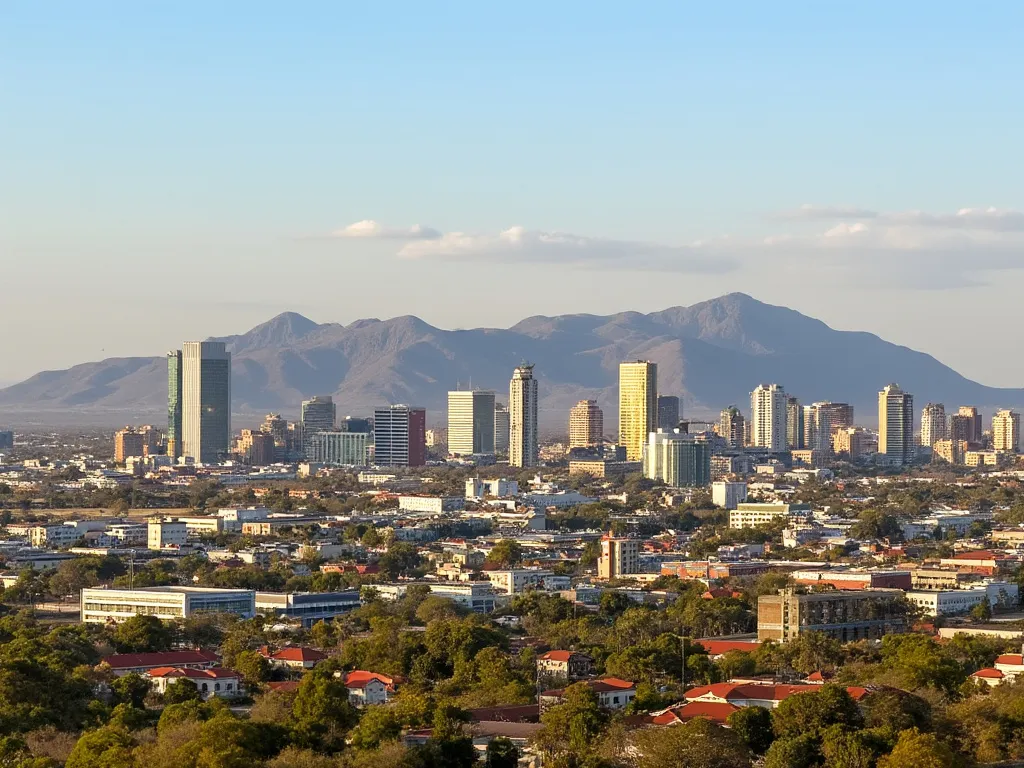 Gaborone
Gaborone
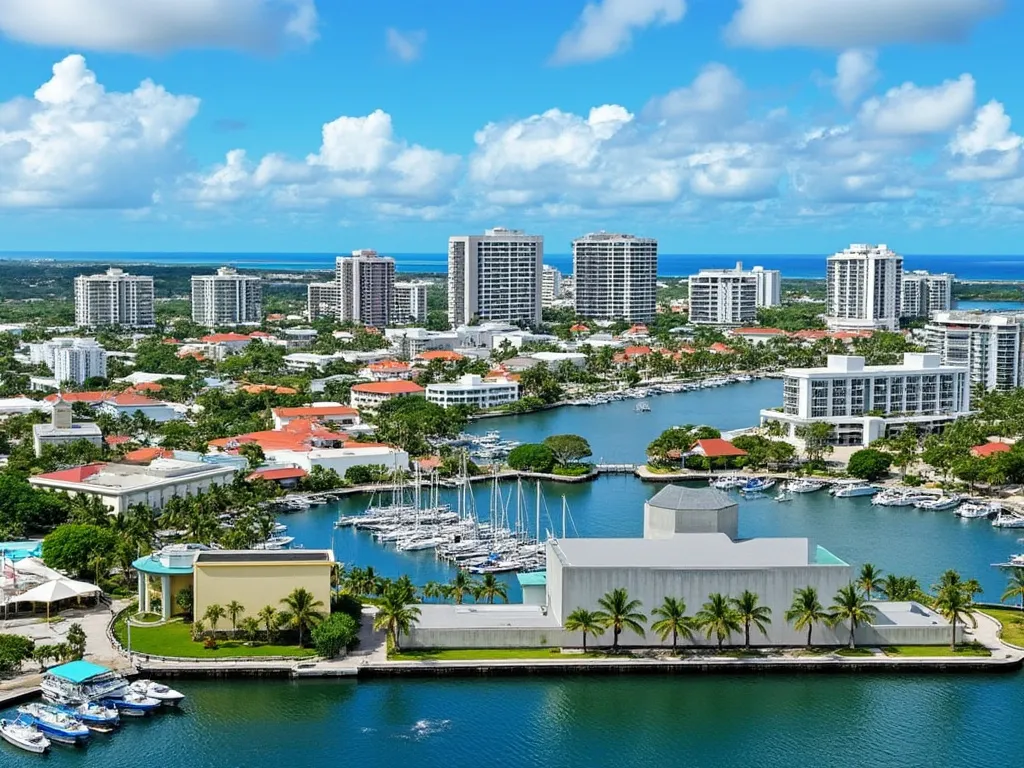 George Town
George Town
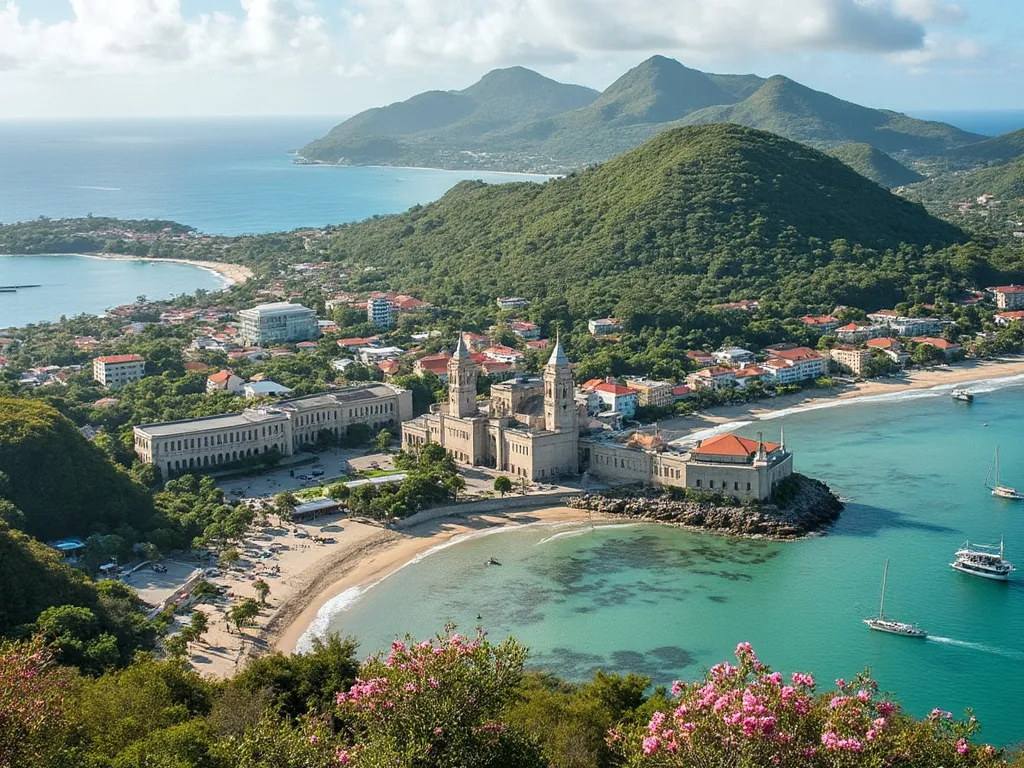 Fort-de-France
Fort-de-France
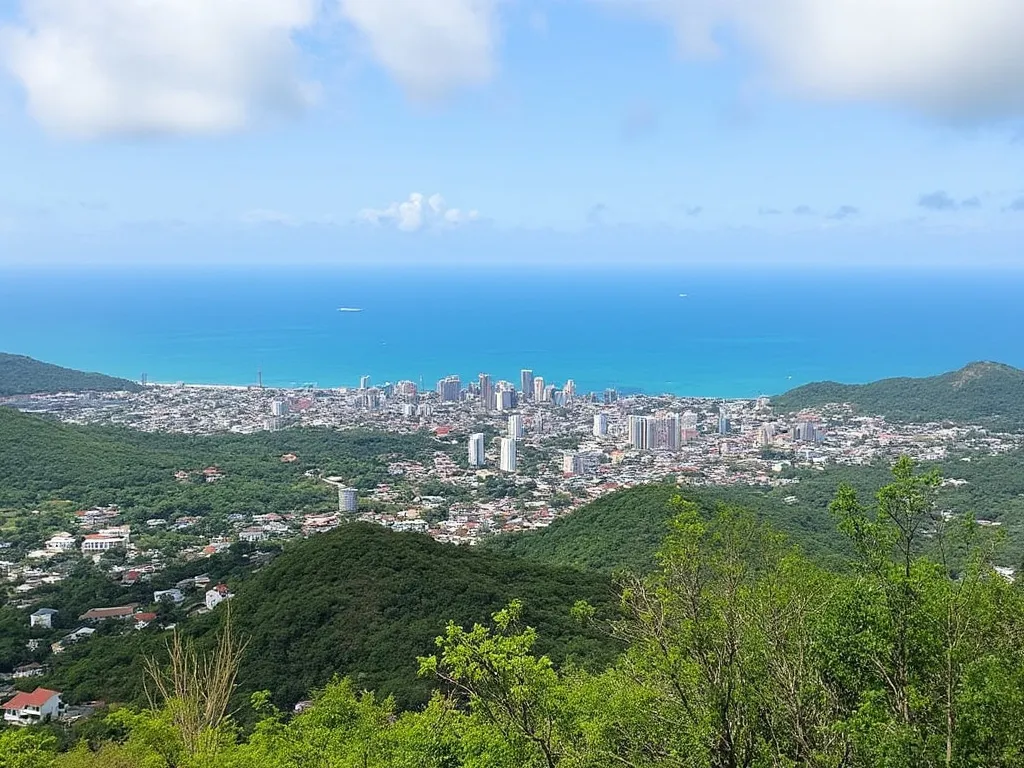 Freetown
Freetown